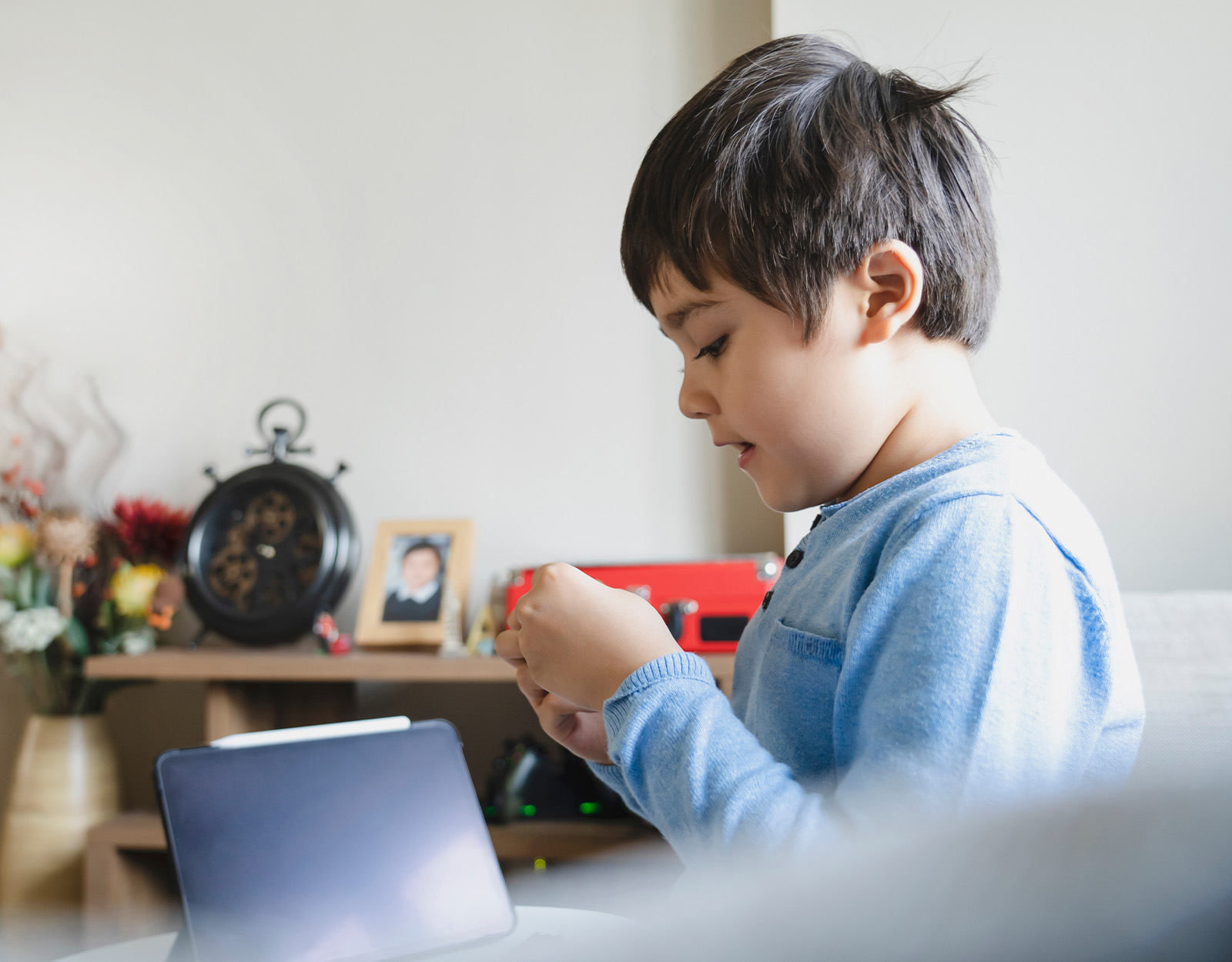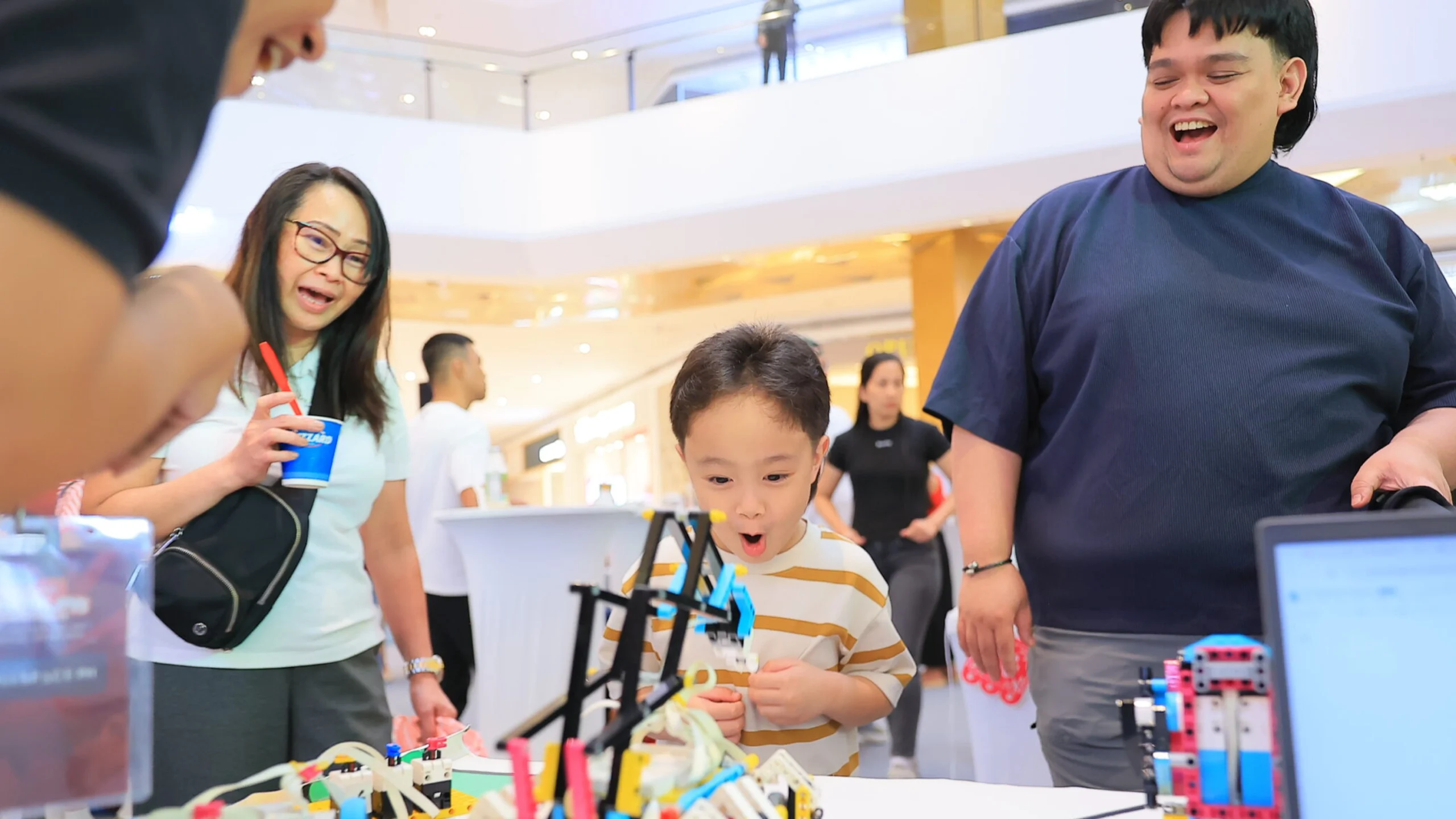When Screen Time Turns Into Scream Time: What Parents Can Do Screen Addiction Makes Their Kids Aggressive
When kids are addicted to the screen/gaming and are acting aggressively, what can parents do?
Jenny’s son, Felix, used to be content playing with trains, puzzles, and blocks, but everything changed when he got an iPad and a Nintendo Switch at the age of 11.
Suddenly, he was glued to the screens from morning to night, barely interacting with the family.
Jenny tried setting rules and even tried to take away the devices, but Felix’s addiction only led to explosive outbursts and aggressive behavior.
Feeling lost and scared, Jenny found herself desperately seeking a solution as it seemed like her once-close relationship with her son was slipping away due to the screens.
If this sounds familiar to you, know that you’re not alone in this struggle.

Taking away devices doesn’t solve the screen addiction issue
It’s understandable that parents may resort to taking away electronic devices or screen time as a form of discipline when they feel that their child’s behavior needs to be corrected.
This approach is often based on the belief that children will learn from the experience.
When other methods like persuasion and pleading aren’t effective, it’s natural for parents to consider removing their children’s devices.
It’s important to acknowledge that as a parent, you want the best for your child and that you may feel compelled to take action to address any potential addiction to electronic devices.
However, it’s important to recognize that simply removing screens and electronic devices may not be enough to address the underlying issues.
If your child is spending a lot of time on their screen, it could be a sign that they are dealing with some difficult emotions or stress and may not be having all their needs met.
Using the screen might be a way for them to find comfort and a sense of achievement, especially in gaming.
Taking away your child’s smartphone could make things worse because they would lose their way of coping with their emotions and meeting their needs.
They might then turn to other unhealthy coping mechanisms or struggle to deal with their emotions.
They might even try to use someone else’s phone or create a new account, which isn’t a good solution.
Your child might not be willing to open up to you because they don’t feel like they can trust you.
Instead of taking their smartphone away when you’re upset, take a moment to calm down.
When your child is deeply engrossed in gaming or staring at a screen, abruptly stopping them or trying to take away their devices can make them feel irritated and disrespected. This can lead to aggressive behavior.
Rather than punishing them, try to connect with them first and understand what they’re going through.
Meet Jenny
How we helped Jenny, a mother of a 13-year-old teenage son, reduce her son’s screen time from 8 hours per day to 3 hours per day in just one month!
Jenny’s son used to enjoy reading books and playing board games, puzzles, and toy trains.
However, when he got an iPad and Nintendo Switch at the age of 11, he became addicted and started spending 8 hours a day gaming and watching YouTube.
After working with us, we were able to help reduce his gadget use from 8 hours to 3 hours in just over a month.
As a result, the son started showing renewed interest in his old hobbies like reading, board games, and trains, and his academic performance also improved significantly.
Previously, Jenny would have to nag and threaten to remove the gadgets, and her son would often fight back, throw tantrums, or have meltdowns.
However, after working with us, Jenny learned how to better regulate her son’s screen time and communicate with him more effectively.
We also helped her work on her inner self and her relationship with herself, as well as her mindset about parenting and how to rebuild a different type of relationship with her teenage son.
As a result, her son has been more open to reconnecting with her, and just two months after working with us, he invited her to play a video game with him.
When Jenny first heard about our “Reduce Your Child’s Screen Time” webinar and our past case studies, she knew we were the best option for her breakthrough.
However, she had self-doubt about whether she could do this, given her chaotic relationship with her son. Nevertheless, she took a leap of faith, and the results speak for themselves.

Helpful steps for managing your child’s excessive screen time
Here are three steps to deal with your child when they have been on the screen for too long:
1) Respond to your child’s misbehavior.
Most of the time, parents react to their children’s misbehavior, which can push the children away.
Instead of reacting, take a moment to calm yourself down.
Once you can calm down, respond to their misbehavior and guide them to take a break from the screen.
2) Connect with your child before correcting them.
As parents, we often tend to correct our child’s misbehavior, but no one likes to be corrected, especially in a heated moment.
Your child may feel resentful, angry, and unhappy with you.
Therefore, try to connect with them first.
For example, rather than shouting from upstairs to ask them to stop their screen time, go to them instead. Gently approach them, explain that you have dinner or an outing in the next 30 minutes, and ask them how long they need to finish their game.
When you are calm and leading your child, it is easier to lead them out of their screen time.
3) Guide your children to set boundaries with the screen and reach an agreement on technology use.
Instead of simply setting rules and expecting your children to obey, work collaboratively with them to set boundaries with their screens.
When your child is young, they might try to please you, but as they become teenagers, they will want more freedom and are less likely to comply.
By working together, you can guide them to set boundaries with their screens.
According to a recent report by Statista, over 48% of the world’s population, which is approximately 3.8 billion people, are addicted to their phones.
It’s crucial to keep in mind that setting boundaries is essential for various aspects of our lives, including wealth, health, and relationships.
Just as we establish boundaries with our food to maintain good health, it’s equally important to set limits with our screen time. This balance can significantly contribute to our overall well-being.
Setting boundaries means deciding, to cut in, and do the things that are necessary, have higher priority, or are important to you.
For example, if your family is important to you, you will allocate quality time for your family instead of binging on your smartphone.
Once you have guided them to set boundaries with the screen, it allows them to see the importance of setting these boundaries.
Then, it is easier to work on a technology use agreement with your child that works.
Why Technology Agreement work better?
Let me explain why agreements work better than rules.
Consider this scenario:
When you set rules, your child breaks the rules.
Who is the bad guy?
Is it you or the rules?
Now, when both you and your child set an agreement and your child fails to follow through, who is the bad guy?
The blame shifts to your child, and they will likely feel guilty for not keeping their word.
Empowering your child to use technology is important for their long-term development.
Technology will continue to shape the world at an ever-increasing pace, especially with the advancement of Artificial Intelligence.
The long-term solution is to guide your child on how to use these apps and technologies responsibly and wisely.
By empowering them, you can help them use the screen and the Internet responsibly.
If you want to learn more about what you should do about your child’s screen time, join our free webinar “20 Painful Mistakes Parents Regret Making In Their Child’s Screen Time and What To Do Instead.”
—————————
Jessie Liew inspired to help parents from being clueless, overwhelmed, and helpless to manage their children with technologies to become parents who are confident, happy, and empowered to raise independent, conscious, and resilient children who are thriving in this era of technologies and AI.
Jessie Liew is the founder of Digital Parenting Coaching and a mother of 4. Her previous career included working as a cybersecurity specialist, where she protected clients from the harmful effects caused by online hackers and predators. In her spare time, Jessie enjoys reading, playing games, and adventures.
If you would like to learn more about Jessie and her work, please visit her website at https://www.neverfightwithyourkids.com/. You can also find her on Facebook, Instagram, and Linkedin as Jessie Liew SP.
More about screentime?
For WFH Parents: 5 Toys That’ll Keep Your Toddler Busy
How Much Screen Time Is Too Much?
Screen Time or Scream Time? How to Manage Gadget Use in the Family, Minus the Squabbles









